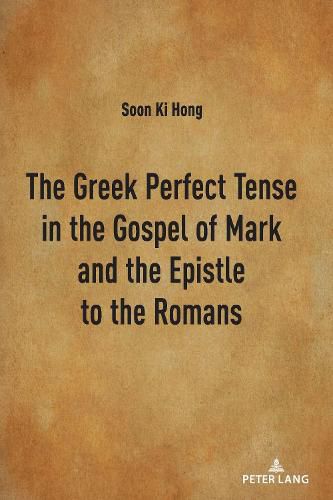Readings Newsletter
Become a Readings Member to make your shopping experience even easier.
Sign in or sign up for free!
You’re not far away from qualifying for FREE standard shipping within Australia
You’ve qualified for FREE standard shipping within Australia
The cart is loading…






This title is printed to order. This book may have been self-published. If so, we cannot guarantee the quality of the content. In the main most books will have gone through the editing process however some may not. We therefore suggest that you be aware of this before ordering this book. If in doubt check either the author or publisher’s details as we are unable to accept any returns unless they are faulty. Please contact us if you have any questions.
The Greek Perfect Tense in the Gospel of Mark and the Epistle to the Romans is designed to resolve the confusion that has resulted from Stanley Porter’s understanding of the use of Greek perfect tense. For Porter, the perfect tense functions as a third level of frontground which denotes the highest prominence on a discourse. Porter has argued that the perfect tense is chosen to deliver a present state, disregarding anterior activity. This book supports the validity of a traditional understanding of the Greek perfect tense, which is rooted in a dual feature. The author argues that the perfect tense is chosen to indicate a present state that results from anterior activity and functions as background for main events or themes. The author formulates three rules to discuss the function of the Greek perfect tense in Mark and Romans. Through the discussion of the perfect tense using these rules, the author finds it appropriate to interpret all the Greek perfects in Mark and Romans in light of the perfect’s inherent dual feature. This book should prove useful for seminary students, pastors, or scholars who are struggling with how to interpret the Greek perfect tense in the New Testament.
$9.00 standard shipping within Australia
FREE standard shipping within Australia for orders over $100.00
Express & International shipping calculated at checkout
This title is printed to order. This book may have been self-published. If so, we cannot guarantee the quality of the content. In the main most books will have gone through the editing process however some may not. We therefore suggest that you be aware of this before ordering this book. If in doubt check either the author or publisher’s details as we are unable to accept any returns unless they are faulty. Please contact us if you have any questions.
The Greek Perfect Tense in the Gospel of Mark and the Epistle to the Romans is designed to resolve the confusion that has resulted from Stanley Porter’s understanding of the use of Greek perfect tense. For Porter, the perfect tense functions as a third level of frontground which denotes the highest prominence on a discourse. Porter has argued that the perfect tense is chosen to deliver a present state, disregarding anterior activity. This book supports the validity of a traditional understanding of the Greek perfect tense, which is rooted in a dual feature. The author argues that the perfect tense is chosen to indicate a present state that results from anterior activity and functions as background for main events or themes. The author formulates three rules to discuss the function of the Greek perfect tense in Mark and Romans. Through the discussion of the perfect tense using these rules, the author finds it appropriate to interpret all the Greek perfects in Mark and Romans in light of the perfect’s inherent dual feature. This book should prove useful for seminary students, pastors, or scholars who are struggling with how to interpret the Greek perfect tense in the New Testament.